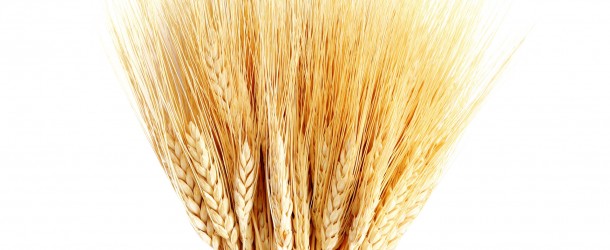Unless you grow all of your own food, never go to the grocery store and don’t have any friends, you’re probably acutely aware of gluten’s increasingly imperative demeanor in diet and disease. Sales of gluten-free products are drastically on the rise and everyone and their mother seems to self-diagnose a gluten intolerance. Though you might roll your eyes when you hear yet another person claim their “gluten-free” diet is the solution to all their health issues, the self-diagnosis and attention to one’s diet — especially in our American Westernized medicine culture where pharmaceuticals and HMO’s make profits off of people’s dis-empowerment to pay attention to their health and attempt self-care — is actually something to support and explore.
As I walk by the artisan bakery in my neighborhood, smelling the fresh baguettes coming out of the oven with irresistible pining for just one bite, I remind myself that wheat and bread products have been a human dietary staple for tens of thousands of years, dating back to the agricultural boom in the Fertile Crescent. Regardless of this impressive heritage and success as an agricultural staple, wheat seems to have been demonized in modern American diets. Still, wheat products supply an average of 513 calories / person / day, and continue to be pursued by international health and agricultural institutions as the solution to ending world hunger. The complications that arise from transforming wheat into the most powerful (and profitable) crop in the world are failures in sustainable agriculture, massive yield decline, loss of wheat diversity due to monoculture farming and, potentially, breeds of wheat that are making everyone sick.
Between 1900-2000, wheat has lost 75% of crop diversity. Some hot new research and professional opinions highlight that this decreased diversity, in conjunction with strategic breeding of wheat for super-powered wheat varieties, are contributing in a major way to gluten intolerance. Celiac groups in Italy have been very outspoken against modern wheat seeds, claiming that the genetic mutations from radiation treatments dating back to the early 1900’s have majorly contributed to increase in wheat-related health issues. Emerging epidemiological studies are linking lack of dietary diversity with growth of chronic disease, pointing out that indigenous foods have higher nutritional health protecting properties. Two other peer-reviewed studies have shown old wheat varieties to have agronomic performance equal to modern wheat varieties AND provide increased phytochemicals, fiber, tocopherol, polyphenols and carotenoids.
Though the information around modern wheat varieties and celiac or gluten intolerance may seem vague, people are starting to hone in on some precise connections. Dr. William Davis, author of Wheat Belly, is helping lead the movement in demystifying modern wheat and its affects on health. A practicing cardiologist, Dr. Davis had his own wheat intolerance issues. He used himself as an experimental sample and found that he could digest bread made from einkorn wheat with absolutely zero issues as opposed to bread made from modern wheat, which caused a dangerous spike in blood sugar, nausea, fatigue, headaches and cramps for more than 36 hours. Dr. Davis explains that modern wheat has been cross-bred many times with grasses, most commonly goat grass, and that humans have shown some intolerance to goat grasses. Additionally, a wheat hybrid retains 95% of its parental proteins, but up to 5% of the proteins may have novel characteristics, including gluten which is more prone to changes. This fact is debatable amongst plant geneticists and seed scientists as the data is relatively inconclusive, but it’s worth investigating. And when it comes down to it, GMO crops and designer seeds have been tested very little on long term affects of human health. We may just now be starting to see the consequences.
So maybe you want to try some old wheat varieties for yourself and see how it makes you feel? The Heritage Wheat Conservancy is on a crusade to catalog as many diverse wheat varieties as possible, featuring emmer and einkorn as two of its featured ancient wheats. Sunrise Flour Mill and Bluebird Grains are just two other milling operations bringing heritage wheat varieties back into the mainstream. Maybe it’s time to find the heritage in your wheat!
Image provided by Free Great Picture
